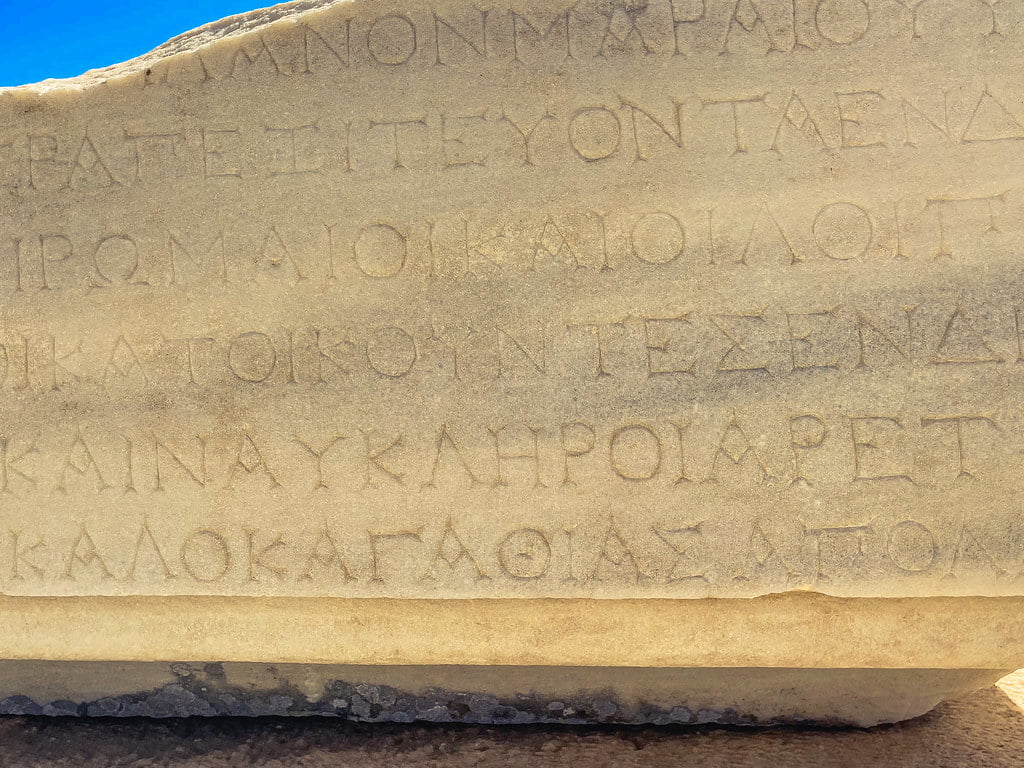The Backbone of Greek Culture
Religion plays a central role in many Greek traditions, with the Greek Orthodox Church being a key influence. The majority of Greek traditions are tied to religious observances, reflecting the deep spiritual connection that many Greeks feel with their faith.
The Most Important Religious Celebration
Easter is the most significant religious holiday in Greece, surpassing even Christmas in importance. The entire week leading up to Easter, known as Holy Week, is filled with rituals and services that culminate in the celebration of the Resurrection of Christ.
Megali Pembti (Holy Thursday) is marked by the dyeing of eggs, traditionally red, symbolizing the blood of Christ. These eggs are used in a game on Easter Sunday where family members try to crack each other’s eggs—a symbol of breaking free from the tomb.
Megali Paraskevi (Good Friday) is a day of mourning, with church bells tolling slowly throughout the day. In the evening, a solemn procession takes place, where the epitaphios, a representation of Christ’s body, is carried through the streets.
Megalo Savato (Holy Saturday) sees the lighting of the Holy Flame at midnight, a symbol of Christ’s resurrection. This flame is passed from candle to candle among the congregation, illuminating the night and bringing the community together in a moment of shared faith.
Kyriaki to Pasha (Easter Sunday) is a day of joy and feasting. Families gather for a traditional meal that often includes lamb roasted on a spit, symbolizing Christ as the Lamb of God. The cracking of the dyed eggs and the exchange of the greeting “Christos Anesti!” (“Christ is Risen!”) are integral parts of the celebration.
Name Days: A Personal Celebration
In Greece, name days are often celebrated with more significance than birthdays. Each day of the year is dedicated to a Christian saint or martyr, and people named after that saint celebrate their name day on that date. It is customary for the person celebrating their name day to host friends and family, offering sweets and drinks as part of the tradition. Unlike birthdays, name days are public knowledge, and it is common for acquaintances and even strangers to offer well-wishes.
Cultural Traditions
Beyond religious customs, Greece has a wealth of cultural traditions that reflect its rich history and the values of its people.
Greek Weddings: A Festive Union
Greek weddings are renowned for their vibrant celebrations, steeped in tradition and symbolism. The ceremony is held in a Greek Orthodox Church and is filled with rituals that represent the union of the couple and their connection to God.
The Crowning is one of the most important moments of the ceremony. The bride and groom are crowned with flower or metal crowns, symbolizing their new roles as king and queen of their household. These crowns are joined by a ribbon, representing the unity of the couple.
The Dance of Isaiah is another key part of the ceremony, where the couple walks around the altar three times, led by the priest, signifying their first steps as a married couple.
The wedding reception is a lively affair, filled with music, dancing, and plenty of food and drink. The traditional Kalamatianos and Tsamikos dances are performed, with guests joining in to celebrate the newlyweds.
Greek Festivals: Celebrating Life and Tradition
Greece is home to numerous festivals throughout the year, many of which have their roots in ancient customs.
Carnival (Apokries): This festive season takes place before Lent and is marked by parties, parades, and masquerades. People dress in costumes and celebrate with food, drink, and dancing, a tradition that dates back to ancient Dionysian celebrations.
Ohi Day (October 28th): A national holiday commemorating Greece’s rejection of Mussolini’s ultimatum in 1940. The day is marked by military parades, speeches, and cultural events, celebrating Greek resistance and national pride.
August 15th (Dormition of the Virgin Mary): This day, known as Dekapentavgoustos, is one of the most important religious holidays in Greece. It is celebrated with church services and festivals, particularly on the islands of Tinos and Paros, where large pilgrimages take place.
The Rhythm of Greek Life
Greek traditions also permeate everyday life, from the way people greet each other to the customs surrounding food and hospitality
Greek Hospitality (Philoxenia)
Philoxenia, or “friend to a stranger,” is a deeply rooted concept in Greek culture. Greeks are known for their hospitality, often welcoming guests with open arms and offering food, drink, and comfort. This tradition can be traced back to ancient times when hospitality was considered a sacred duty, often connected with the gods.
The Siesta: A Midday Pause
In many parts of Greece, particularly in the summer months, the siesta is a cherished tradition. Between 2 PM and 5 PM, shops close, and people retreat to their homes to rest during the hottest part of the day. This midday break reflects the slower, more relaxed pace of life that is a hallmark of Greek culture.
Conclusion
Greek traditions, whether tied to religion, culture, or daily life, are a vibrant expression of the country’s heritage and identity. They offer a unique lens through which to understand the values, beliefs, and history of the Greek people. From grand celebrations like Easter and weddings to the simple yet profound practices of hospitality and the siesta, these traditions continue to shape and define Greek life today, preserving a connection to the past while enriching the present.









